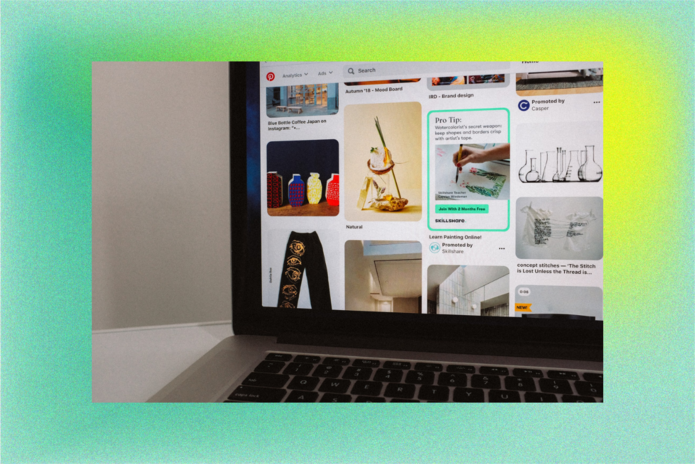On July 1, Pinterest announced that it is banning weight loss ads, rolling out a new policy developed in collaboration with the National Eating Disorders Association (NEDA). This is the most aggressive stance taken by any social media platform and comes during a time of heightened eating disorder challenges caused by COVID-19 and an increase in searches for body neutrality content, the company says. While this is obviously a good move (nothing ruins my day more than seeing a Noom ad), it’s hard to think that a social media site will ever be a force for good when it comes to eating disorders and body image.
Social media, famously, is a mess. From interference with our democracy to the proliferation of the alt-right to mental health crises amongst young people, we’ve all heard about (and probably suffered from) the downsides of social media. Success for social media companies is measured based on their ability to keep users engaged on the platform, meaning they don’t care if the content we’re seeing is healthy or dangerous, uplifting or damaging — they just care that we keep scrolling. It’s also notoriously hard to regulate activity online, so even when apps have well-intentioned policies, they can’t always put them to use.
Pinterest’s new policy is still a good thing. It’s a small step in the right direction, and it interrupts the often passive role that social media companies take in regulating the impact they have. The weight loss industry is worth $71 billion, but Pinterest, following their consumer’s demands, decided that they wanted out. Their active decision will hopefully remind (and pressure) other apps like Instagram and TikTok to adjust their policies as well.
While the days of “pro-anorexia” blogs are over, and it seems like weight loss ads could be on their way out too, social media still does a lot to uphold a thin ideal. Pinterest only banned paid advertisements, meaning that you can still find a lot of weight loss, diet culture, and fatphobic content on the site, especially from individual content creators. However, if you search for major keywords relating to eating disorders, Pinterest redirects users to NEDA.
While social media companies can regulate advertisements and hashtags, it is harder to control the content that their users post. Today, anti-fatness often comes in the form of a smiling influencer, posting pictures of themselves drinking a green smoothie in their athleisure and talking about how important it is to stay fit. Obviously drinking green smoothies or wearing athleisure or posting a picture of yourself doing both those things doesn’t make you a bad person, or inherently fatphobic. The point here is that there’s a certain image and ideal that can be used to shame fat people and trigger others, but because it’s not explicitly disparaging, it cannot be regulated. The effect it has is a whole other story, though. Misconceptions about what it means to be healthy are perpetuated, a certain body type is upheld as the ideal, and people strive to recreate the pictures they see, sometimes at great cost to their mental and physical health.
While both Instagram and TikTok have some regulations on weight loss advertising, they are the apps that I’d most like to see change next. Lately my TikTok has been inundated with exercise routines and videos talking about eating disorders, two kinds of videos that are not welcome on my For You Page. Despite my consistent efforts to hit “not interested,” I can’t seem to escape pro-diet culture content on the app, and Instagram is no better. With a young audience and wide scope of content, I’m hoping TikTok doesn’t become what Tumblr once was for people struggling with eating disorders.
As someone who tries to avoid all content relating to food, dieting, and exercise on social media (I don’t even follow my friends’ cooking Instagrams), it is nice to know that Pinterest is trying to help me by reducing the number of interactions I’ll have with this kind of content. Their policy means that I’ll be spending less time hitting “Hide Pin” and more time perfecting my summer 2021 mood board, which is what social media should really be all about. Hopefully Instagram and TikTok will follow their lead.
If you or someone you know has an eating disorder and needs help, call the National Eating Disorders Association helpline at 1-800-931-2237, text 741741, or chat online with a Helpline volunteer here.


